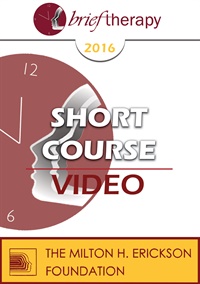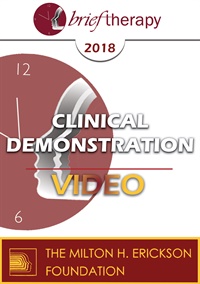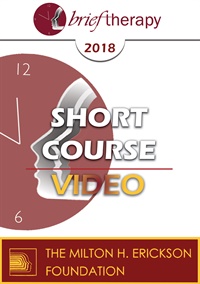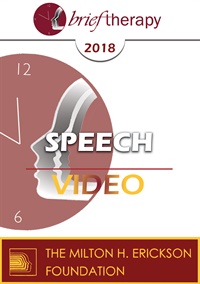- Average Rating:
- Not yet rated
- Topic Areas:
- Short Courses | Mindfulness | Habits | Brief Therapy | Psychotherapy
- Bundle(s):
- Learning Track - Mindfulness
- Categories:
- Brief Therapy Conference | Brief Therapy Conference 2016
- Faculty:
- Lawrence Peltz, MD
- Course Levels:
- Master Degree or Higher in Health-Related Field
- Duration:
- 1:30:12
- Format:
- Audio and Video
- Original Program Date:
- Dec 08, 2016
- Short Description:
- We all have habits, from seemingly harmless to life threatening. But how do they work? And what makes them so resistant to change? This workshop presents a simple model of four categories of experience—the benefits and costs of maintaining v. relinquishing a habit. This brief approach emphasizes mindfulness practice and works well with other psychotherapeutic methods.
- Price:
-
Sale is $29.00
price reduced from Base Price - $59.00
Credit available - Click Here for more information
- Average Rating:
- Not yet rated
- Topic Areas:
- Clinical Demonstrations | Mindfulness | Psychotherapy | Brief Therapy
- Bundle(s):
- Learning Track - Mindfulness
- Categories:
- Brief Therapy Conference | Brief Therapy Conference 2018 | Online Continuing Education
- Faculty:
- Ronald Siegel, PsyD
- Course Levels:
- Master Degree or Higher in Health-Related Field
- Duration:
- 1:02:29
- Format:
- Audio and Video
- Original Program Date:
- Dec 08, 2018
- Short Description:
- Clinicians are enthusiastically discovering that mindfulness practices can enlighten and enliven their lives, both inside and outside the therapy hour. These techniques hold great promise for personal development and as a powerful method to enhance virtually all forms of psychotherapy. But what does mindfulness-informed therapy actually look like? This demonstration, using volunteers from the audience, will illustrate how mindfulness practices and insights derived from them can inform treatment.
- Price:
-
Sale is $29.00
price reduced from Base Price - $59.00
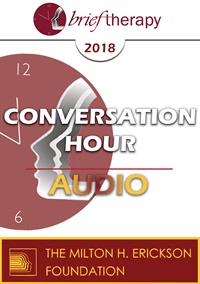
- Average Rating:
- Not yet rated
- Topic Areas:
- Great Conversations | Hypnosis | Mindfulness | Brief Therapy
- Categories:
- Brief Therapy Conference | Brief Therapy Conference 2018
- Faculty:
- Ronald Siegel, PsyD | Michael Yapko, PhD
- Duration:
- 1:00:08
- Format:
- Audio Only
- Original Program Date:
- Dec 08, 2018
- Short Description:
- Compare and contrast mindfulness and hypnosis. Understanding differences and similarities. Indications for using each approach.
- Price:
- $15.00 - Base Price
Credit available - Click Here for more information
- Average Rating:
- Not yet rated
- Topic Areas:
- Short Courses | Brief Therapy | Trauma | Ericksonian Hypnosis and Therapy Techniques | Mindfulness | Pain and Healing | Somatic Experiences
- Categories:
- Brief Therapy Conference | Brief Therapy Conference 2018 | Online Continuing Education
- Faculty:
- Ronald Alexander, PhD
- Course Levels:
- Master Degree or Higher in Health-Related Field
- Duration:
- 1:31:13
- Format:
- Audio and Video
- Original Program Date:
- Dec 06, 2018
- Short Description:
- This short course will address the rapid treatment of trauma by utilizing Somatic Experiencing, Ericksonian Hypnosis and Mindfulness practices for accessing the unconscious and activating inner resources with SE, mindfulness, and trance.
- Price:
-
Sale is $29.00
price reduced from Base Price - $59.00
Credit available - Click Here for more information
- Average Rating:
- Not yet rated
- Topic Areas:
- Speeches | Mindfulness | Narcissism | Brief Therapy | Self-Esteem
- Categories:
- Brief Therapy Conference | Brief Therapy Conference 2018 | Online Continuing Education
- Faculty:
- Ronald Siegel, PsyD
- Course Levels:
- Master Degree or Higher in Health-Related Field
- Duration:
- 1:00:31
- Format:
- Audio and Video
- Original Program Date:
- Dec 09, 2018
- Short Description:
- What if our therapeutic goals of improving self-esteem, developing a stable and coherent sense of self, and expressing our authentic feelings all turn out to be misguided? What if they inadvertently feed the cultural enthusiasm for celebrity and success that makes so many of us miserable? This presentation will examine how mindfulness practices can be harnessed in psychotherapy to reexamine our conventional sense of self, leading both us and our clients toward greater well-being, wisdom, and compassion.
- Price:
-
Sale is $29.00
price reduced from Base Price - $59.00
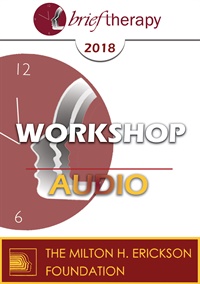
- Average Rating:
- Not yet rated
- Topic Areas:
- Workshops | Multicultural | Trauma | Brief Therapy | Mindfulness
- Categories:
- Brief Therapy Conference | Brief Therapy Conference 2018
- Faculty:
- Laura Brown, PhD
- Duration:
- 1:59:58
- Format:
- Audio Only
- Original Program Date:
- Dec 07, 2018
- Short Description:
- Just as human beings are not generic, so, too, trauma is an event that is affected by and interacts with people's intersectional identities. This workshop will introduce participants to a mindful model for understanding how to move towards cultural competence in practice with trauma survivors. We will pay particular attention to therapist countertransference/fragility, and to the effects of shame, guilt, privilege, and dominant culture narratives on trauma treatment. Some experience working with trauma survivors is assumed.
- Price:
- $15.00 - Base Price
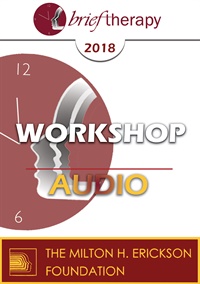
- Average Rating:
- Not yet rated
- Topic Areas:
- Workshops | Tailoring | Mindfulness | Psychotherapy | Brief Therapy
- Categories:
- Brief Therapy Conference | Brief Therapy Conference 2018
- Faculty:
- Ronald Siegel, PsyD
- Duration:
- 1:56:11
- Format:
- Audio Only
- Original Program Date:
- Dec 07, 2018
- Short Description:
- Mindfulness and compassion practices hold great promise not only for our own personal development, but also as remarkably powerful tools to augment virtually every form of psychotherapy. They are not, however, one-size-fits-all remedies. Practices need to be tailored to fit the needs of particular individuals—and this presentation will show you how to creatively adapt them to meet the needs of diverse people and conditions.
- Price:
- $15.00 - Base Price
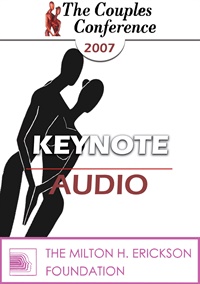
- Average Rating:
- Not yet rated
- Topic Areas:
- Keynotes | Couples Therapy | Mindfulness | Neurobiology | Relationships
- Categories:
- Couples Conference | Couples Conference 2007
- Faculty:
- Daniel Siegel, MD
- Duration:
- 57:41
- Format:
- Audio Only
- Original Program Date:
- Apr 28, 2007
- Short Description:
- This keynote address will offer an overview of the neural basis of mindful awareness and how this important way of being present and receptive to one's own inner processes creates enhanced capacity for emotional resonance and empathy.
- Price:
- $15.00 - Base Price

- Average Rating:
- Not yet rated
- Topic Areas:
- Keynotes | Couples Therapy | Mindfulness | Neuroscience | Attunement
- Categories:
- Couples Conference | Couples Conference 2008
- Faculty:
- Daniel Siegel, MD
- Duration:
- 2:07:07
- Format:
- Audio Only
- Original Program Date:
- Apr 25, 2008
- Short Description:
- Mindful awareness has been scientifically proven to promote social, emotional and physical well-being, and is an effective part of treatment to prevent relapse of drug addiction and chronic depression. Mindfulness also enhances empathy, and in that way may promote healthy interpersonal relationships. This ancient practice of being fully aware in the present moment, without grasping onto judgments, has been found in cultures around the world. At the heart of this proposal is that the state of mindful awareness harnesses specific social and emotional circuits in the brain. The development of these “resonance circuits” creates an integrated brain state that creates the benefits of improved immune and cardiac function, enhanced empathy and self-understanding, and a deeper connection to oneself and others.
- Price:
- $15.00 - Base Price
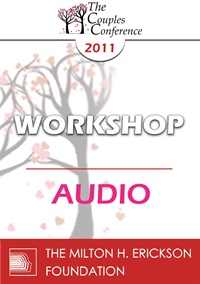
- Average Rating:
- Not yet rated
- Topic Areas:
- Workshops | Couples Therapy | IMAGO | Relationships | Mindfulness | Neurobiology
- Categories:
- Couples Conference | Couples Conference 2011
- Faculty:
- Jette Simon
- Duration:
- 1:33:01
- Format:
- Audio Only
- Original Program Date:
- Apr 01, 2011
- Short Description:
- Like walking a tightrope, working with couples in trouble requires focus and balance. Both partners want you to take their side, and, at times, it’s easy to get swallowed up by the intense emotionality of the sessions. So, how can you maintain a sense of balance and create an atmosphere in which healing can take place? In this workshop, you’ll learn how to use the principles of Imago Relationship Therapy to connect with the issues the couple brings to you and transform the emotional temperature of the session.
- Price:
- $15.00 - Base Price
Please wait ...


